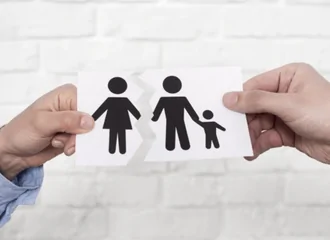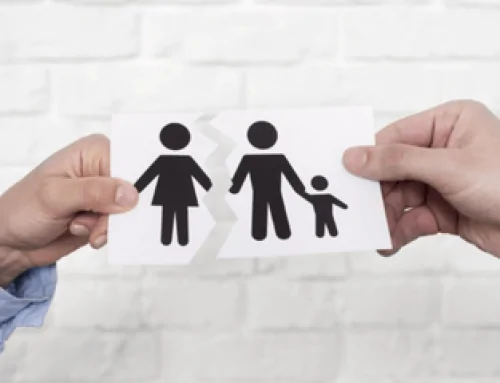How Do You Get Full Custody Of A Child?

Full custody, also referred to as primary custody or sole custody, is somewhat disfavored by the courts. However, the courts may consider awarding full custody if you can prove that the other parent:
- Had abused (physical or emotional) you or your child
- Had neglected the child’s needs
- Is a substance abuser
- Is mentally Ill and that mental illness makes is very difficult for that parent to care for the child
- Had abandoned the child
- Is imprisoned
- Is planning to relocate
Note that the courts will consider your claim for full custody only if it is in the best interests of the child. If you have claimed full custody just to deprive the other parent’s rightful parenting time, you will not succeed because the courts believe that a child needs the love and care of both parents. The courts also believe that receiving the love and care of both parents helps the child to become a responsible and productive adult.
That said, here are the circumstances in which you can claim full custody:
1. The Other Parent Had Abused You Or Your Child
As domestic violence or emotional abuse occurs inside the four walls of a home, it can be difficult to gather evidence and prove it in the courts. Getting a witness to provide evidence for your claim can also be difficult. The following evidence of physical or emotional abuse meted out to you or your child has the potential to convince the courts that the other parent is unfit for custody:
- Photographs/videos of injuries
- Photographs/videos of damaged property
- Medical reports and case papers stating that emotional or physical abuse had been inflicted on you or the child
- Police report (of the officers whom you called for help) detailing your complaint (The police officers can also be called as witnesses.)
- Testimonies of any guests or neighbors, if any, who may have witnessed abuse being meted out to you or your child (your attorney will have to subpoena them)
- Case filed by your family law attorney and any restraining order that your attorney may have requested from the courts
If the courts are convinced that the other parent used to abuse you or your child, they may consider giving you full custody. In most cases, the courts can award supervised visitation rights to the other parent.
2. The Other Parent Had Neglected The Child’s Needs
A neglected child means that he/she is not provided with basic needs such as proper nutrition, required medical care, supervision, clothing, a safe and secure home, and other things that are required to ensure the child’s well-being. Courts come down heavily on parents who neglect their child, and if they find that the degree of neglect is enough to have harmed the child, they may severely restrict the neglecting parent’s custodial rights.
Children who are neglected by a parent may not complain about parental neglect because they may be afraid of the repercussions. Typically, a neglected child may practice poor hygiene, wear unsuitable clothes, display extreme behavior (anger, sadness, hostility, depression, jealousy, or truancy), not relate to peers, lack energy, be hungry, seek attention, or display frequent mood swings.
The evidence that you need to prove that the child is a victim of neglect can include a psychiatrist’s diagnosis report, witness accounts, and/or photos/videos of the child when he is exhibiting any of the conditions described above.
3. The Other Parent Is A Substance Abuser
A parent who is in the habit of abusing drugs or alcohol is not considered an ideal parent by the courts. He/she can even be found unfit for any form of custody if the substance abuse has placed the child in danger or has exposed the child to a toxic environment. The following are examples of evidence that can help the courts decide the extent of the parent’s addiction and his/her suitability for child custody:
- Medical reports
- DUI arrests
- Court-ordered evaluation/test
- Enrolment in a voluntary treatment program
- Report of a drug test requested by your attorney
- Witness testimonials
- Complaints made to social workers or any government-approved child abuse and neglect prevention organizations
- Even when a parent is found to be addicted to porn, and he/she exposes the child to it, the courts can find him/her an unfit parent.
4. The Other Parent Is Mentally Unstable
When a parent is mentally unstable, he/she obviously cannot take care of the child. Leaving a child under such a parent’s care can pose a danger to the child. So, if you believe that the other parent is mentally unstable, you can present any of the following evidence to support your claim of full custody:
- Medical records saying that the other parent has a serious mental illness
- Medical opinion saying that the other parent’s mental instability can pose a danger to the child
- Testimonials of social workers, teachers, neighbors, or friends
- Psychological evaluation report
- Police reports filed by anyone against the other parent’s unstable behavior
- Any communication (emails, social media posts, etc.) that proves the other parent’s abnormal behavior
- Any benefit received by the other parent from an organization like the Social Security Disability Fund
5. The Other Parent Had Abandoned The Child
A parent is said to abandon his/her child when the parent has:
- Very little or no interest in the upbringing of the child
- Not maintained contact with the child for a period specified by the state
- Left his child with another person for a period longer than that specified by the state, and has not communicated with the child during this period
To prove abandonment, you need testimonies from witnesses (along with your testimony) of how the other parent deserted the child. Once the testimonies are filed, the burden of proof shifts to the abandoning parent. If the other parent proves that he made attempts to interact with the child but was prevented by circumstances, whatever they may be, then the courts may not terminate his/her parental rights. However, if the other parent has deliberately abandoned the child, he/she can lose his parental rights.
6. The Other Parent Is Imprisoned
When a parent is imprisoned, he/she obviously cannot care for the child. So, depending upon the seriousness of the reason for the incarceration, and depending upon whether the incarcerated parent can provide for the child’s needs after his/her release, you may want to request the courts for sole or full custody of the child while allowing the other parent supervised visitation rights – it all depends on the circumstances.
The evidence you need to prove that the other parent is incarcerated can be found in public records.
7. The Other Parent Is Planning To Relocate
When the other parent is planning to relocate to another state or another country, you may seek full custody or request the courts to modify the original custodial arrangement.
Relocation is difficult for the child because he/she is removed from a supportive environment he/she is familiar with and perhaps in love with. It also makes co-parenting tough because the child now has to live with a long-distance custodial arrangement with the other parent.
The courts award custody in relocation cases like they do usually – in the best interests of the child. If they feel that relocation will serve the child’s best interests, they may award full custody to the relocating parent.










